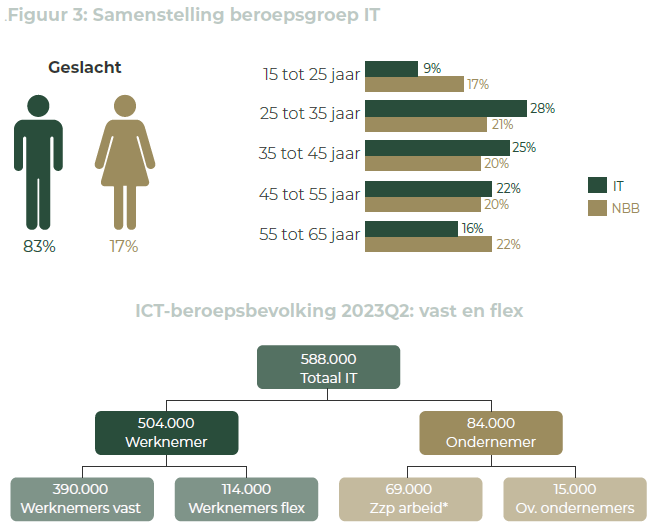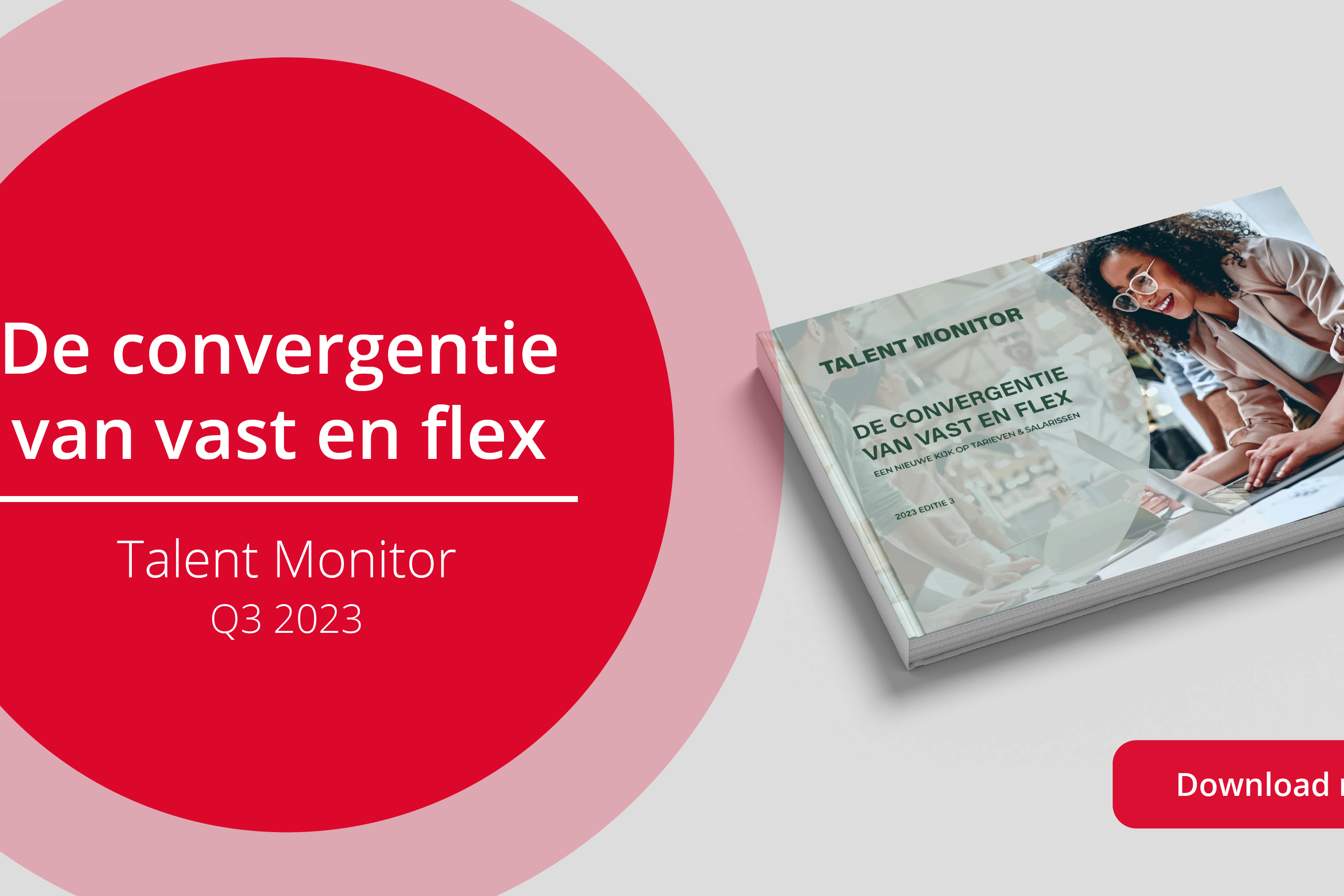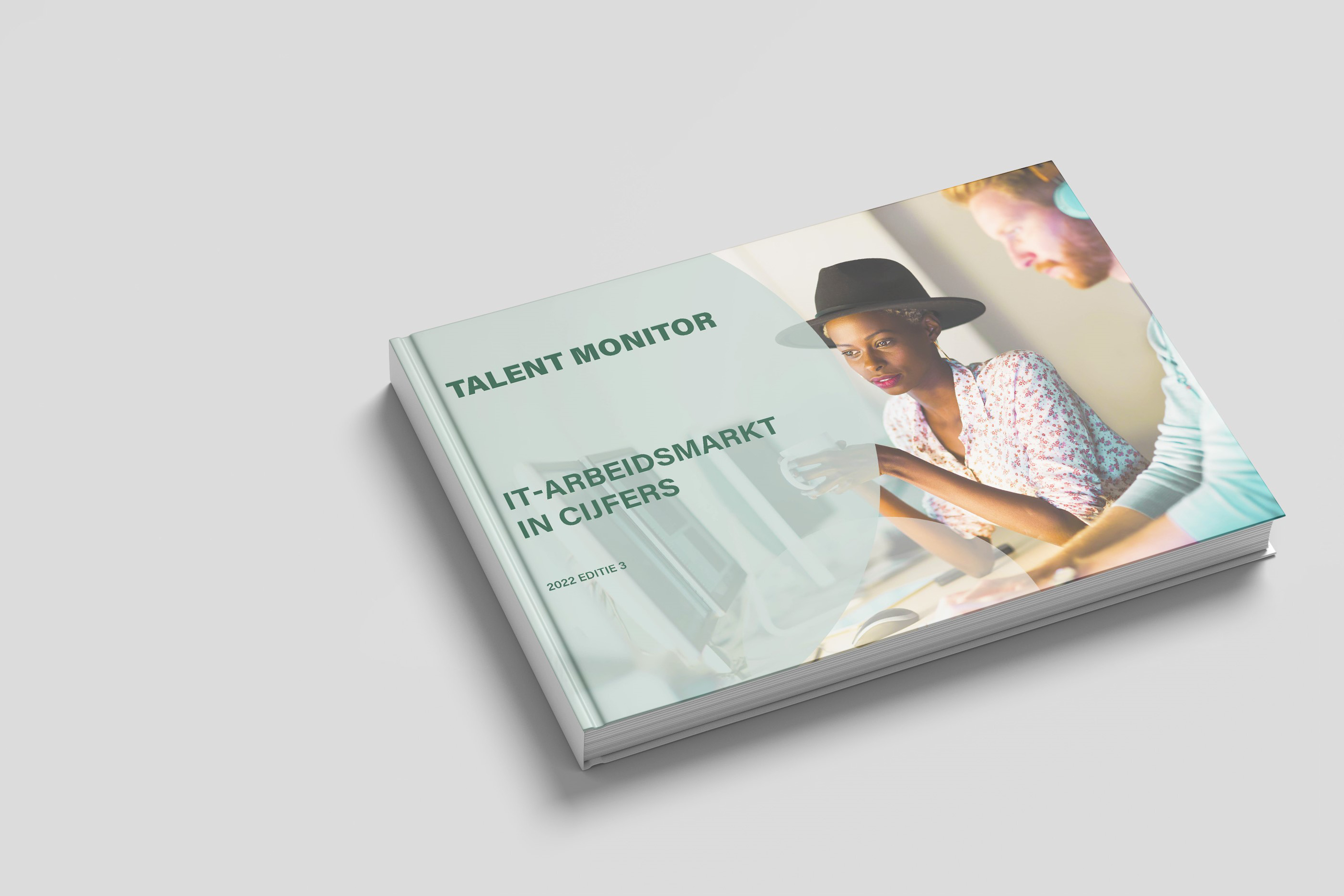ICT labor market in figures 2023-2024
Despite the fact that the market is turning, there is no sign of any relaxation or serious decrease in scarcity in the ICT labor market. This Talent Monitor focuses specifically on ICT professionals and provides insight into various aspects of the labor market. Such as development of vacancies/assignments, labor market activity, job changes, sourcing pressure, pull factors, employment conditions, the most desired employer, the most in-demand and fastest growing ICT skills and information on rates.
1 in 4 ICT workers switched jobs or employers in 2023
November 30, 2023 - The most recent Talent Monitor shows that 1 in 4 employed ICT professionals have changed jobs and/or employers in the past 12 months. While the ICT worker is by nature a latent job seeker, or in other words: they are open to another job, but do not actively search and apply themselves Where the mobility of ICT workers in recent years was fairly stable, this has increased sharply in the past year and the loyalty to the own manager and/or employer has decreased. These are some of the dozens of striking results from large-scale research into the current labor market for ICT professionals by Intelligence Group and HeadFirst Group.

Key findings
- Growth of the profession of I(C)T continues. Now it is at about 6% of the labor force. By 2030 it will be about 8.5%, is the expectation based on past growth and further development in the areas of automation, digitization, robotization and AI.
- IT and aging are not an issue within ICT workers or the IT sector. Legacy systems and skills are, however. It is therefore important to be well informed, especially about the fastest growing ICT skills among agencies and employers. This gives insight into the futureKey terms in this are: data, identity, Tmap, Vue.js, Apache and many more.
- The growth of the IT workforce over the past year is entirely due to the increasing number of self-employed workers. From 76 thousand in 2022 Q2 to 84 thousand in 2023 Q2, an increase of over 10%.
- The scarcity is huge and the recruitment feasibility is extremely difficult and will remain very to extremely difficult in the coming years.
- On average, ICT professionals move positions within their organizations or externally within 4 years. In particular, internal mobility and retention is a tricky phenomenon for ICT workers. Because of the high degree of specialization, growing internally or filling other roles is difficult. Therefore, a follow-up move outside is often more logical. Most ICT practitioners move when approached and do limited searching on their own.
- The target group is mostly latent which indicates greater recruitment complexity and implies a sustainably different recruitment strategy. Sourcing is the number one recruitment strategy, with LinkedIn being the base on the one hand and proving to be an increasingly difficult area where ICT talent leaves.
- More and more IT professionals are making sure they can no longer be hounded and are taking control of their own lives. That means they search for an interesting employer/client themselves or let their agency/account manager know they are available for a new job. Talent managers and talent pools are the success formulas for permanent and flex.
- In the Netherlands, between the hourly rate in salaried employment and the freelance or secondment rate, depending on experience level, is an average factor of 2.4 to 2.7. Not so for ICT workers. The average hourly rate factor for ICT professions is 3.78. There is a lot of extra margin and air in ICT freelance and secondment rates that cannot be explained by additional recruitment costs.
- ICT professionals go for a good salary/hourly rate and the work experience, whether in the office or not with nice colleagues. Flexibility is the norm already by definition for independent professionals.
- The State is again the most preferred employer among ICT workers in 2023, followed by ASML and Google. In Europe, they are Google, Microsoft and Amazon.
Partner

Download Talent Monitor
By downloading the Talent Monitor, you agree that your data will be shared with co-initiator Intelligence Group.
Other reports...
Talent Monitor: The convergence of fixed and flex
We compile quarterly - based on recruitment data from...
Talent Monitor: Fixed is getting more mobile and flex is getting more sustainable
We compile quarterly - based on recruitment data from...
Talent Monitor: Rate development professionals 2023
We compile quarterly - based on recruitment data from...








